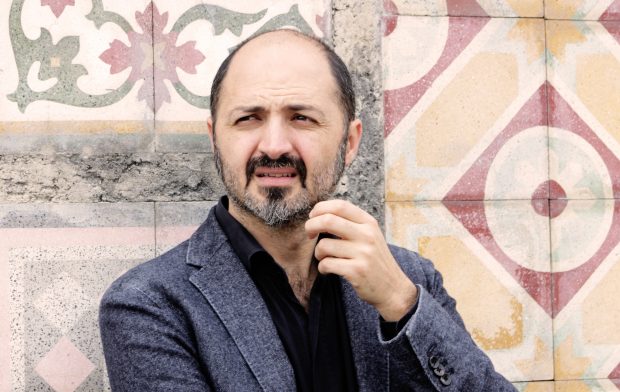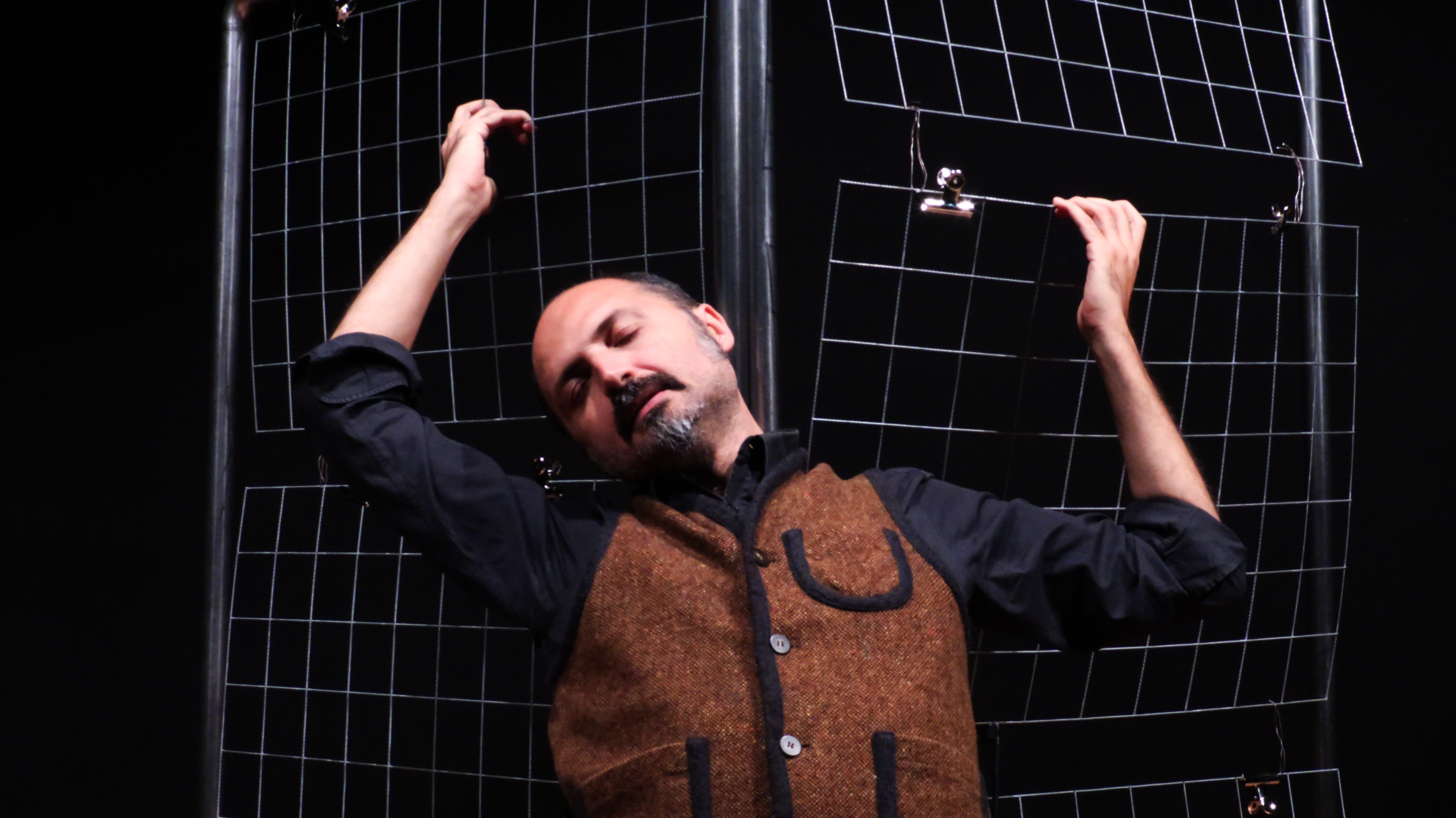After taking part in the very first edition, Ernesto Orrico comes back to In Scena!, this time with “La Mia Idea. Memoria di Joe Zangara” (“My Idea. Memory of Joe Zangara”). Orrico, who plays Joe Zangara, graduated from Dams of the Università della Calabria and perfected his art at the Teatro Valdoca along with many other talented professionals. He will be accompanied in this show by Massimo Garritano, an experienced and involved musician graduated from both the Berklee College of Music of Boston and the Conservatorio di Musica di Cosenza, who will play the bouzuchi and the dobro, the first being an instrument typically Mediterranean and the second typically American, which help to bring out the tragedy of the events. The show, produced by the acting company Zahir, is indeed the story of the controversial Italian-American man, his humanity, and his radical ideas that lead him to take extreme decisions. The shoe is a powerful story that will put you inside Zangara’s head.
How was this show created?
The stories that I tell in my theater have to do with emigration and the Calabria region. Even today, emigration is both our – of the Calabrese people – bad and good luck. Today’s emigration is not the one where people used to leave only with a cardboard suitcase, but an intellectual emigration, of people that either study or work in the north of Italy or abroad. It’s a theme that has always marked my imagination and belongs to me even from a strictly personal point of view. My one uncle lives in Toronto, Canada, and my other one in Turin, northern Italy, many of my closest friends live outside Calabria: in Milan, Bologna, Geneva, Vienna. Calabria is a land that expands over its natural borders. I think about this region as a gigantic spider web, imbued with life experiences and unique stories.
When I discovered Joe Zangara’s story, I was fascinated by the hurtful humanity that comes out from his memorial. The story of a man that had to fight the odds and misfortunes right from his childhood comes out; a man that looked for a social redemption in emigration and didn’t find it. A story that doesn’t have a happy ending, that doesn’t culminate with the achievement of the “American dream.”

The InScena! Festival allows Italian acting companies to perform in the US. What do you think is a good way to efficiently spread Italian theater in the United States?
The internet could be used more and more effectively to educate about the contemporary Italian theater, which is rich in poetic and unique approaches and of actors and directors that are renewing the stage practices. It’s clear, though, that we should create more opportunities to concretely bring our projects to the US. In this way, with the help of the Italian cultural institutions, it would be possible to build a platform to receive adequate funds. It’s obvious, but it’s a matter that we can’t ignore: theater is either live or it’s not theater. I have some doubts that the institutions (MiBACT in the first place) are aware of how important it is to create new opportunities to bring our theater abroad. In this historical period, in Italy, the leadership is greatly disinterest about the fate of the arts, even though those are the same arts that made our country shine as both a artistic and poetic power.
Is this your first time performing in the States?
No, I was there 10 years ago with the Scena Verticale company: I was a host at some cultural institutions associated with the Italian-American communities in Chicago and New York. In 2013, I also took part in the first edition of the In Scena! Festival with another show produced by Teatro della Ginestra. Both times have been very positive experiences.
What does being in New York and performing in this city mean to you?
The types of theater and performances offered in NY are almost endless and with levels of complexity that are very different from ours. We make a kind of theater that is simple in the form, accompanied by acoustic music, a monolog told first-hand and in which creating an emotional connection with the audience is fundamental. Wherever we go, we try to create the opportunity to exchange an authentic breath with whoever comes to our show; we always look for that time suspension that the theater, with an allegedly simple alchemy, still manages to create.

What do you hope to bring back to Italy after this experience, from both a personal and professional perspective?
I am interested in learning about what this audience, who was not really the first recipient of the show, thinks about it. I would like to have the chance to receive the critiques and, why not, even the suggestions; a comparison is always needed and, above all, I am curious to see howZangara’s language, which is an Italian mingled with the dialects of Reggio Calabria and hybridized by many Italian-American interlayers, will be received. He in facts uses a linguistic structure that looks for a theatrical truth that is not necessarily the same as the truth of the historical character.
How do you feel about bringing to New York and playing a character that is not really loved by the American public?
American culture is loaded with shows, movies and books in which the real or fictional characters make extreme choices like Joe Zangara’s. The American public and, New York’s even more, is very street smart….
How much do you think the immigration process to the United States influenced Zagara’s radical ideology?
Even though he lost his citizenship not long after he came to the US and lived switching from many different jobs, Zangara never assimilated and his political, radical ideas, even though confusing and in a way lacking of a profound ideological depth, made him an outsider. His borderline personality, which was affected by his precarious health conditions, prevented him from connecting to a highly hierarchical and classist society like the American one in the 1920s and 30s.
His coming to decide to carry out an assault against the president is the peak of a private matter at the edge: an iconoclastic gesture through which sublimating his own pain of living.
“La Mia Idea” will be on stage on May 4th at 7PM at the NYU Casa Italiana Zerilli-Marimò and on May 7th at 4PM at The Brick Theater.
For more information: In Scena!












